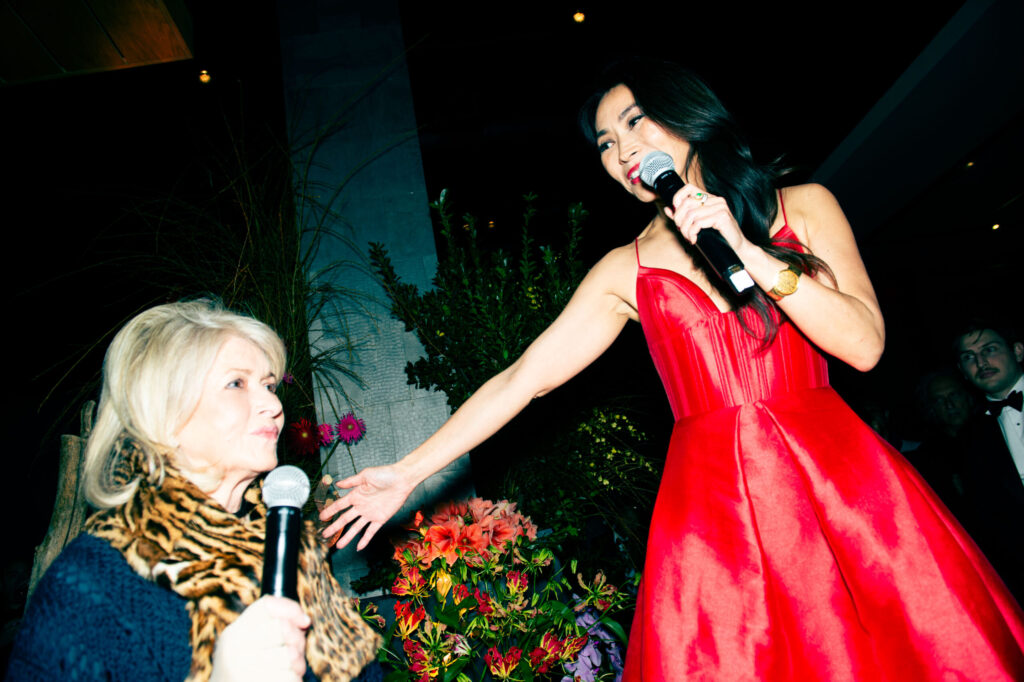All photographs by Felipe Espinal.
I still can’t believe EN Brasserie is closing this Saturday. How could such misfortune befall us? Reika Alexander’s West Village restaurant was always soothing, cozy, delicious, and easy, both a neighborhood staple and a food destination for artists, finance bros, and stars alike. Here, we have some of those stars and artists on what made EN Brasserie so unforgettable. —MEL OTTENBERG
———
MARTHA STEWART
How would you describe EN Brasserie to someone who had never been?
A very beautiful, spacious Japanese restaurant specializing in an eclectic assortment of country-style Japanese cooking. This is not a sushi bar, this is a very different kind of dining experience.
What do you think EN Brasserie contributed to New York’s dining culture, and why do you believe it became a beloved institution?
We’ve been going for many years to EN Brasserie, particularly for the homemade tofu, which was unique for New York diners, for miso broiled fish, and their exquisite rice dishes. Reika, the owner, added a lot to the ambiance, and chef Abe, the founding chef, was quite extraordinary.
How did the hospitality set itself apart?
The restaurant’s hospitality to me and my family—my two grandchildren have been going there their entire lives—was always friendly, impeccable and without fault. My grandchildren have eaten there once a week for their entire lives.
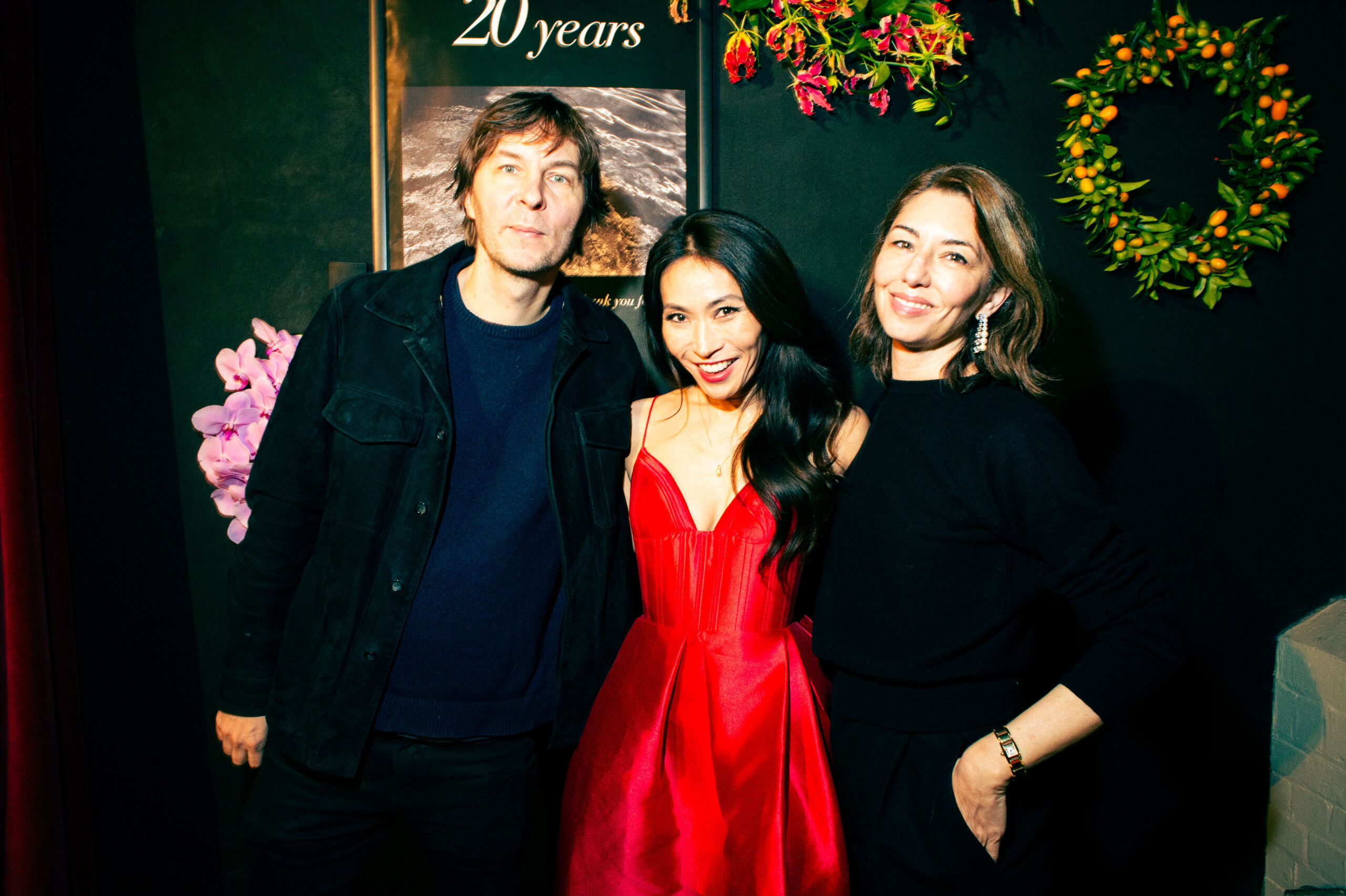
———
SOFIA COPPOLA
What brought you to EN for the first time?
[The restaurateur] James Truman had told me about it. I started going there with my mom who loved Japan and loved the flowers at EN and the food, and when we moved to the neighborhood 12 years ago, with my husband and daughters, it became our family restaurant.
What do you think EN Brasserie contributed to New York’s dining culture, and why do you believe it became a beloved institution?
It was a great space, great food and staff, it felt like you were in Japan… I think creative people always appreciate all the attention to details and when something is so well done. Reika also makes everyone feel at home.
What do you think gave EN its edge in a city where every restaurant is fighting for attention?
It felt authentic, chic and warm.
———
JUSTIN THEROUX
How would you describe EN Brasserie to someone who had never been?
It’s difficult to describe, only in that it’s one of those rare New York restaurants that gets more cozy and familiar over time. I have trouble reflecting on any particular meal there, even though I have eaten there hundreds of times. It’s a place that exists in my memory in its totality. Its hospitality, which flows directly from Reika, is the first thing that strikes you. But eventually, over the years it becomes a second living room of sorts. As far as its closing, all the regulars are feeling like we just lost a room in our own home.
What do you think EN Brasserie contributed to New York’s dining culture, and why do you believe it became a beloved institution?
Putting aside the incredible dishes, which is a huge thing to put to one side, it really was a salon of sorts. One of those perfect New York melting pots for high and low. Graffiti artists and intellectuals. Rappers and philosophers. Comedians and photographers, and on and on. But it never felt like a reach or a pose. Such a wide spectrum of people that went there, but it’s never scene-y. It was just “the spot’.” A sushi go-to, a Japanese Cheers. I almost always saw someone I knew there, or someone I didn’t expect.
What was it about Reika Alexander’s presence that made EN different?
Reika is an incredible host. Hands down the best in New York. She quietly draws attention to the experience she wants you to have and not herself. Which is not to say she isn’t a huge personality in her own right. She has a gentility and a seriousness aimed at your experience when dining with her. The flip side of that is she can also pull an incredible room of people together for a party—a group you could never have selected yourself, which in the end has the effect of broadening your mind and your circle, which I guess is why we all came to NY in the first place. I still am having trouble accepting it won’t be there, but have every confidence it will be made new by her somewhere else.
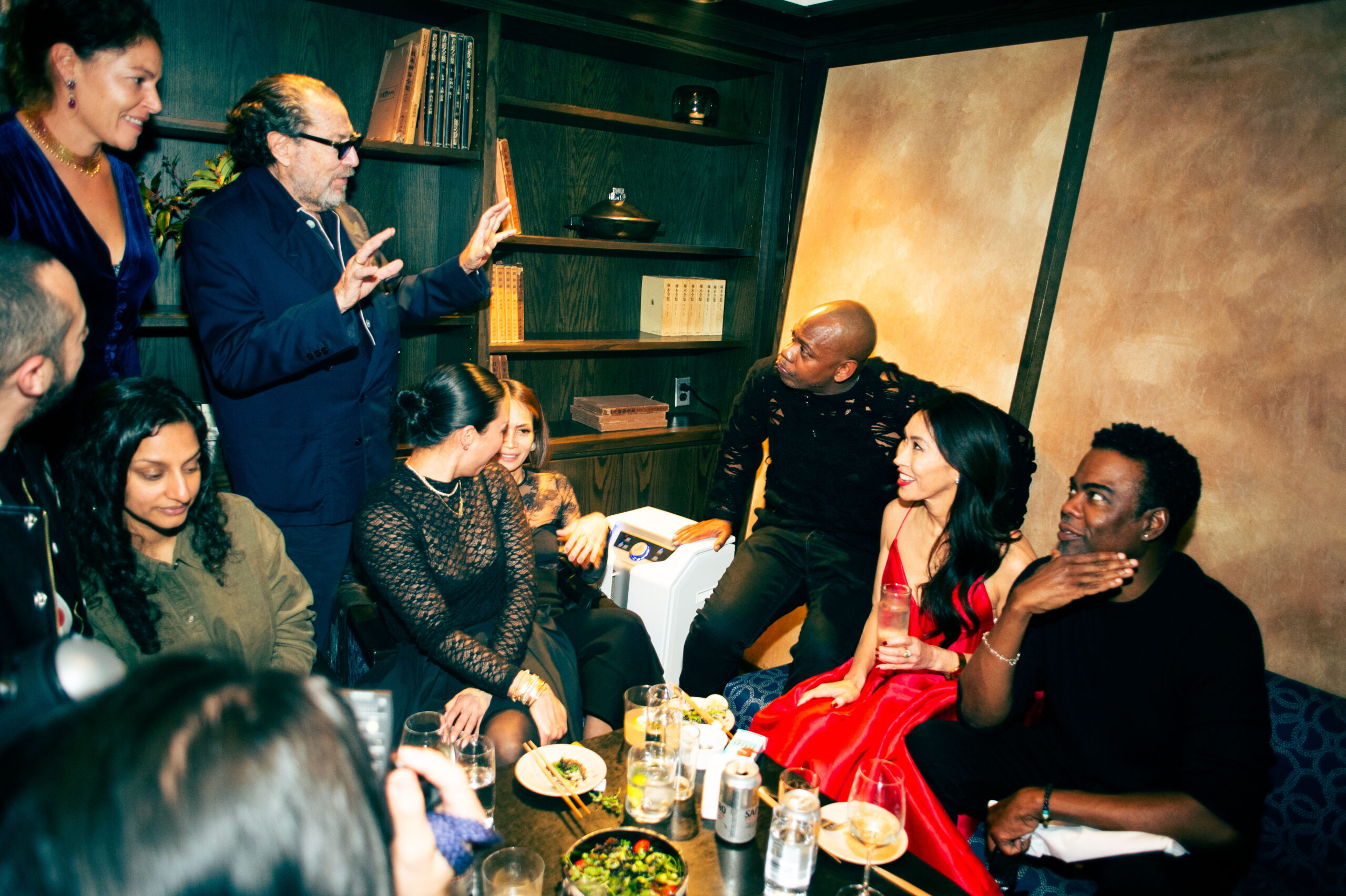
———
INEZ & VINOODH
How would you describe EN Brasserie to someone who had never been?
It’s the most glamorous restaurant in New York where you’ll know everyone person from the art and music world and the food is guaranteed stunning both in taste as in presentation.
Do you remember a night at EN when the vibe, the food, or the company just felt perfect?
The DJ and Reika spinning Japanese jazz in the front room is always the best moment. What has always been an experience is how unbelievable and unique the food is and how the staff makes you feel special and casual at the same time.
EN’s closing feels like the end of an era. Do you think it says something about where New York’s dining culture is heading?
EN is a true Manhattan staple. Large in its American proportions, yet personal. New York food seems to move to Brooklyn but we wish for Manhattan to stay fabulous and extraordinary when it comes to the dining experience.
———
JEFFREY DEITCH
What was it about Reika Alexander’s presence that made EN different?
It is very rare that the unique character of a restaurant is fully embodied in the persona of its owner. EN as an experience and Reika as a personality are inseparable. It has been wonderful to see how Reika has also brought the artwork of her talented son August into the experience of EN.
How did the hospitality distinguish itself from other restaurants?
It has been inspiring to watch Reika in the restaurant, spending time talking with her clientele, choosing the right music for the mood, introducing special guests to one another as if it were her private party. I appreciate the subtle ways in which Reika welcomes her guests, for instance, training the maitre d’ to welcome clients by name and to let them know that Reika is expecting them.
What does EN’s closing say about where New York’s dining culture is heading?
There is a great New York history of restaurants and clubs that define an era. EN is one of those special places that will remain part of cultural history. Since I arrived in the city in the mid ‘70s I have regularly heard complaints that “New York is over,” but the culture of the city keeps rejuvenating. I am waiting for Reika’s next project.
———
JUSTIN WILKES
What do you think gave EN its edge in a city where every restaurant is fighting for attention?
It’s hard to categorize EN as just a restaurant. Yes, it served exceptional food and drink, but it offered something far more elusive, something that, in a city obsessed with rankings, “best of” lists, and chasing the next hottest spot, felt almost revolutionary. EN had a scene. Not “sceney,” but a true scene. A place where, on any given night, stepping through that massive front door felt like walking into another world, a far-off zip code with its own rules and rhythm.
What did walking into EN Brasserie feel like?
The room glowed with warm wood and soft light, the music casting a spell as the crowd—artists, musicians, filmmakers, and the downtown creative set—mingled effortlessly. And at the center of it all was Reika, holding court like the emcee of an improbable evening. EN wasn’t just a restaurant; it was a portal. One night, you’d find yourself transported to Tokyo. Another night, it might feel like London, Paris, or Shanghai. Time seemed to melt away, and the early hours of the morning often crept up unnoticed. For those precious hours, the city beyond the threshold disappeared, and you felt alive, present, and part of something undeniably special.
Was there ever a moment at EN when you felt like you belonged?
I had the rare privilege of being one of Reika’s very first customers—perhaps even her actual first. At the time, I was working in the building upstairs and witnessed the transformation of the ground floor from a broom-swept concrete shell into the warm, jazz-infused haven it would become. I’d pop in occasionally to check on its progress, and one day, I had the good fortune of meeting Reika. She graciously took me on a hard-hat tour, sharing her vision for the space with an enthusiasm so infectious, I was hooked before the first meal was ever served. By the time her soft opening rolled around, I found myself perched at the bar—and never really left.
As a side note, it’s nearly impossible to imagine now what that neighborhood was like in the early 2000s. Back then, before “Hudson Square”, the area was a ghost town, still reeling from the exodus after 9/11. Legacy printing companies and a handful of scattered production houses made up most of the local tenants. Forget dinner—if you wanted so much as a sandwich or coffee, you had to trek a few blocks north of Christopher Street. So the idea of Reika opening a sprawling, 25,000-square-foot Japanese izakaya there was equal parts visionary and, frankly, utter madness.
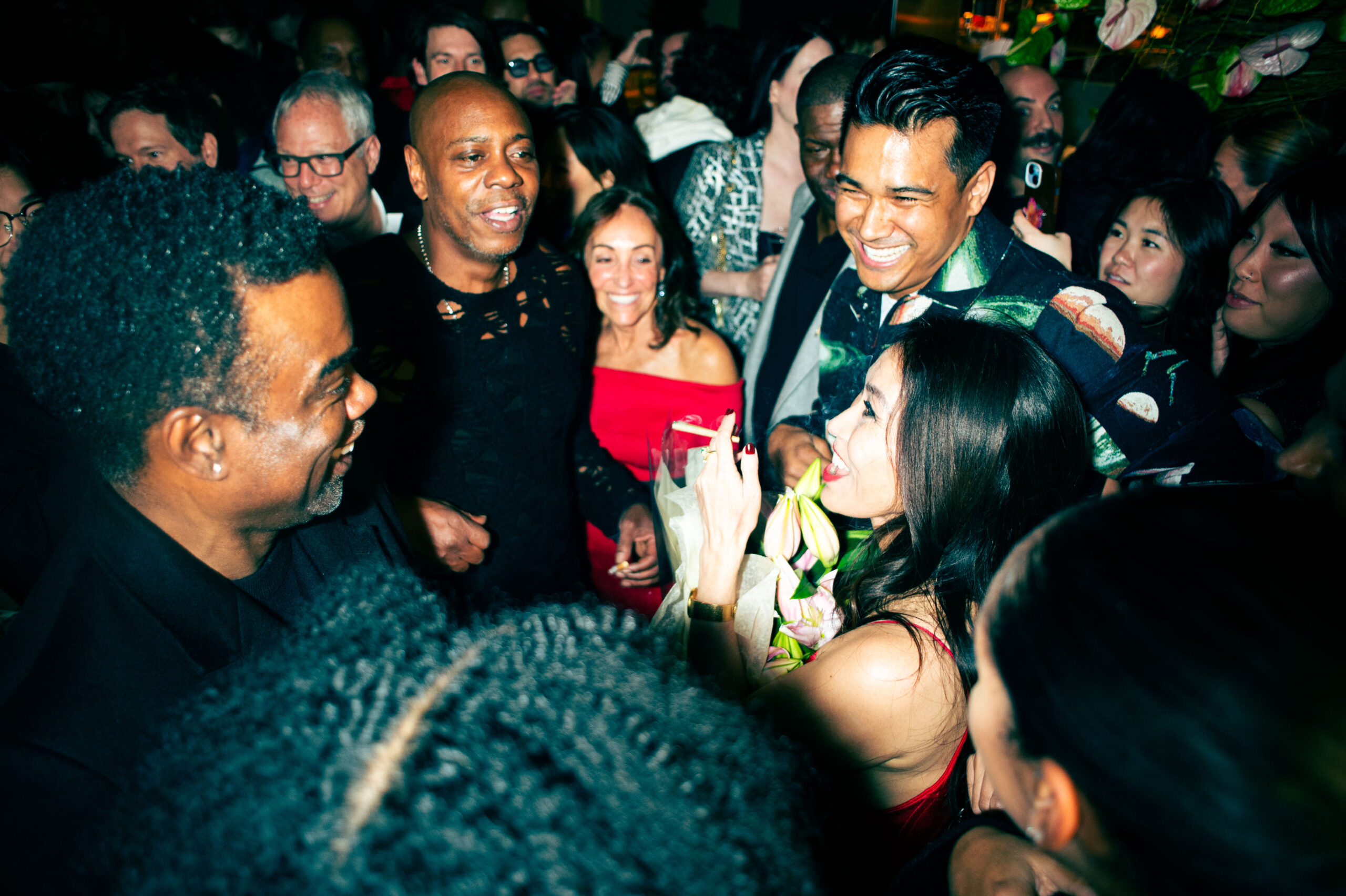
———
CARY FUKUNAGA
Why do you believe EN became a beloved institution?
EN came onto the scene at a perfect juncture between slow food and a growing realization that Japanese fine dining could extend beyond sushi. Reika brought her aesthetic and curatorial senses to perfection, drawing on her jazz roots in creating a space that crossed multiple disciplines.
Do you remember a night at EN when the vibe, the food, or the company felt perfect?
I was leaving on a trip to Colombia with some friends and Reika brought out a special item, “nakaochi,” which is the leftover cut of the side of a tuna that needs to be scraped from between the ribs. It sounds rougher than it is—which is fatty, tender sashimi with a smooth flavor. It was that off-menu item, just being there in one of those moments, Reika trying something new out or had a special delivery, and you get included like family. We all sat together in this beautiful restaurant and scraped like hunter gatherers. I’ve had a lot of memorable meals but that truly stands out.
———
MARINA ABROMOVIĆ
What was it about EN Japanese Brasserie that made it more than just a restaurant to you?
Every time you entered EN Brasserie you felt like you were entering a home. People with familiar faces, Reika’s smile saying she was happy to see you (and you knew that she meant it), knowing the homemade tofu was ready for you, and after every visit, a feeling of well-being.
Did you ever have a moment from EN Brasserie that stands out?
Once a newspaper journalist from the Financial Times in London asked me to do an interview with the condition that it be done at lunch and I choose the restaurant. It was a very high profile paper and I chose EN Brasserie. We ordered a simple meal but the quality of food was so exquisite and it was very enjoyable to see the expression of astonishment on his face. I knew I was in the right place.
What does EN’s closing say about New York City today?
I come from Europe. Keeping tradition alive is a very important part of European culture. It’s heartbreaking for me to see how Americans destroy old buildings to build new and not always great-looking structures. It’s heartbreaking for me to see small businesses disappear. And it’s heartbreaking for me to see Reika’s EN Brasserie, the place we artists, writers, musicians and actors have cherished, to go.
———
JEAN-GEORGE VONGERICHTEN
How would you describe EN Brasserie to someone who had never been?
EN Brasserie is a modern yet cozy and comforting Japanese restaurant in the heart of the West Village. From its interior design to its menu, team, and overall experience, EN embraces modernity while still providing warmth—a personal haven I’ve cherished for many, many years.
What do you think EN Brasserie contributed to New York’s dining culture, and why do you believe it became a beloved institution?
For many years, Japanese cuisine in New York was understood as two things: sushi and ramen. When Reika and her team opened EN, they went far beyond that—introducing hot stone cooking, clay pot fried rice, and smaller Kyoto-style dishes known as O-Banzai. They led the charge in educating New Yorkers about the incredible diversity of Japanese cuisine. Stepping into EN for the first time, I was transported to Kyoto—one of my favorite places in the world—by its design and dishes.
What’s one night at EN that made you think, “This is why I live in New York”?
EN was closed during the pandemic, and as soon as I learned of their reopening, I was one of the first customers back. Every Sunday, my family and I gather for a family dinner, and, like we have done many times in the past, we went to EN. These were uncertain times, but being together with my loved ones and the EN team brought me so much joy. After a delicious meal, I strolled home, my heart filled with warmth and gratitude—for my family, for EN bringing us together, and for the privilege of being in this wonderful city.
———
NORMA KAMALI
Do you remember a night at EN when the vibe, the food, or the company just felt perfect? What made it unforgettable?
The reason people love being there is because all works all the time.
What do you think EN Brasserie contributed to New York’s dining culture, and why do you believe it became a beloved institution?
Great environment and staff. Perfect fit for the West Village. Great Japanese environment and of course the food.
What does EN’s closing say about New York City today?
New York is made of very different neighborhoods and each has special identifying characteristics. EN is like the cheers of the West Village and it will be missed especially after 20 years it has become home for many of us.
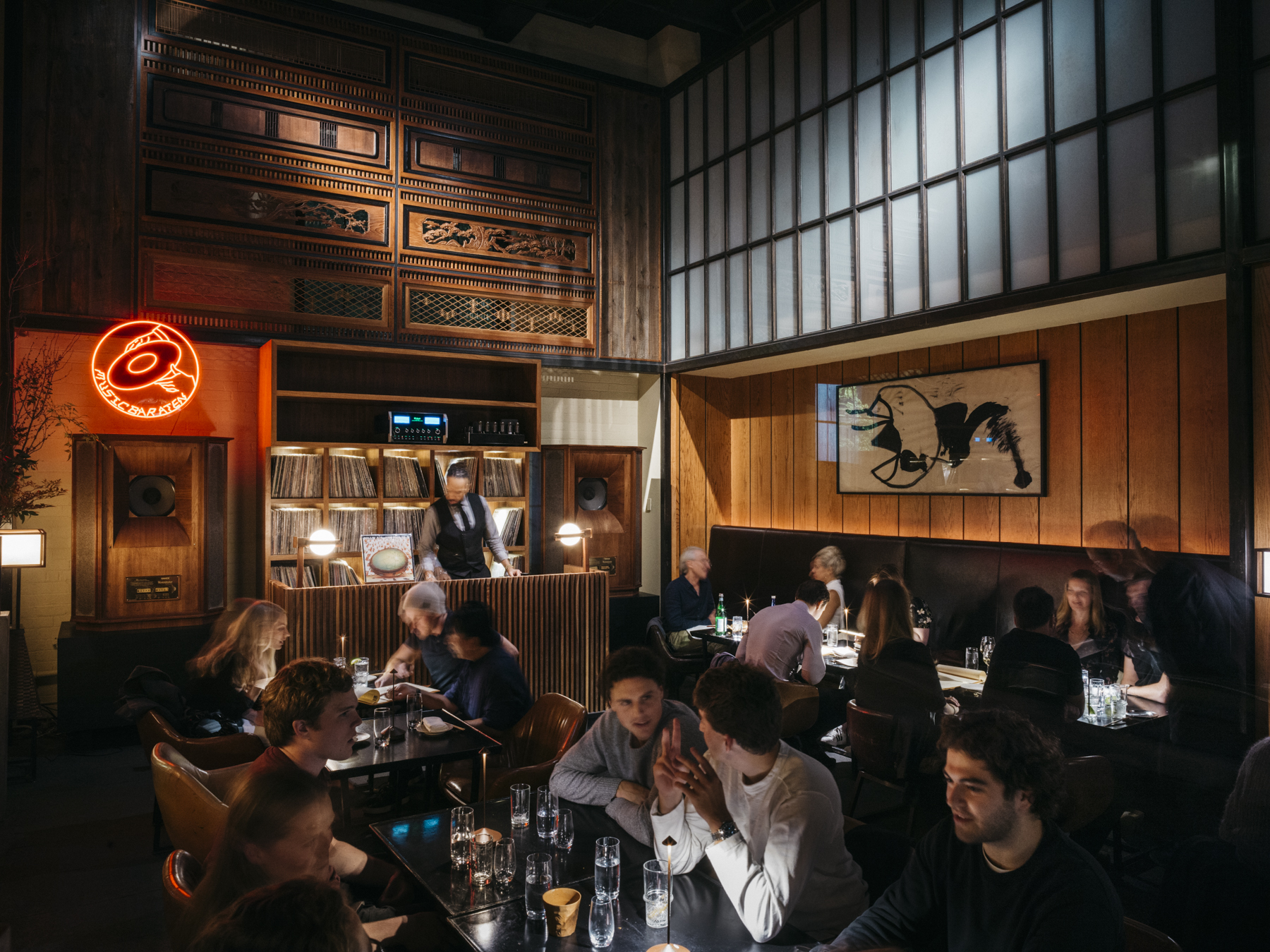
Photo by Daniel Pak

